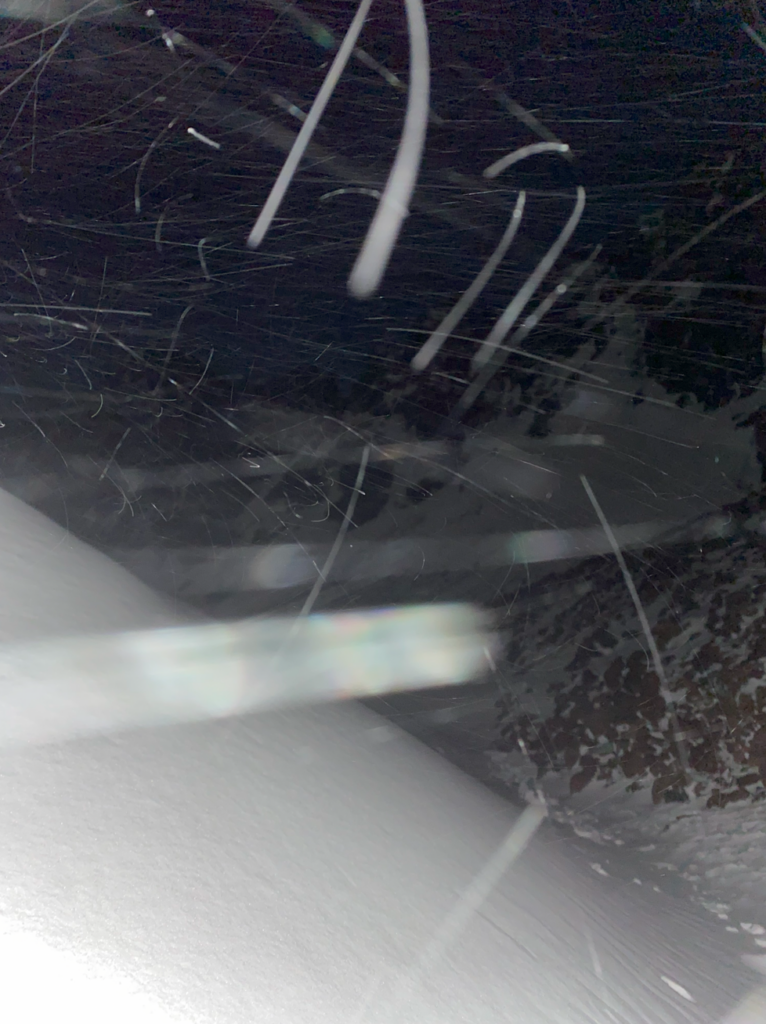I type intently on the keyboard of my laptop. But my right ring finger usually ends up next to the keys. A feeling of numbness and a memory are what remains of those days high in the Atlas, which seem as far away as another life.
I knew it would be cold on the highest mountains in Morocco, but getting frostbite in Africa, who would think that possible?
We had wanted to climb Toubkal together, from the south via a climbing route, the most difficult way to the summit of all, but a bad weather front has now thwarted this. A lot of snow must have fallen up there, but it’s hard to tell how much in the flooded lowlands around Marrakech. We drive into the mountains, through buried roads, to the north side of the highest mountain in North Africa. Access here is restricted for tourists, to put it another way, without a guide it is illegal.
The rain has turned to snow. Shivering with cold, we sit in a dilapidated tourist cabin and watch the snow trickle down in thicker and thicker flakes through the cracked window glass. A brief discussion about what we are doing here, whether I should really leave, ends with the terse conclusion that we can’t leave now anyway. The road is covered in snow.
I step outside, shoulder my rucksack and soon leave the last houses behind me. Everything is white. I consciously avoid the path as there are checkpoints where unaccompanied foreigners are sorted out. Officially, it’s because of the risk of terrorism. I stumble through the stream bed, scurrying from boulder to boulder, trying not to look like a terrorist. I’m not a terrorist, just a traveler. What do terrorists look like? Maybe the same, discreetly sneaking past the checkpoints in the shadows?
The stony embankment of the river, slippery due to the freshly snow-covered rocks, forces me to be careful not to slip into the water. Where the river valley narrows into a gorge and it becomes impossible for me to continue, I leave the valley floor and rejoin the path, which is only marked by footprints in the snow cover.
The higher I get, the heavier the snowfall, the higher the snow cover, soon it’s ten, 20 and then 30 centimeters. The wind whistles and allows snow crystals to penetrate the cracks in my clothing. I am freezing. It won’t be the last time in the next 24 hours. A group of people approaches me, a strange sight in this white out. It’s the guides with their customers. If I keep going up, I won’t survive, that’s probably what they want me to understand. I keep going.
In the deep snow, trail breaking is tiring but I notice the clouds are thin overhead. For a moment it clears up and a pink haze surrounds the highest peaks of the mountains, which I can now see for the first time. It begins to dawn until I arrive at the hut and then the shock: instead of a deserted mountain hut, I find a hostel with more than 100 guests. On the highest mountains of each of the world’s massifs, there is a strange contrast between the still untamed nature and the full wildness of the elements and the merciless commercialization and exploitation of mountain adventures.
The fact that an illegal is up here has reached the hut staff. They are looking for me, but fortunately don’t find me thanks to the unexpected help of some strangers. After 5 hours in my overnight camp, I set off again, pull open the frozen hut door and step out into the moonlit night, into the glistening snow that piles up half a meter high in the valleys in the form of the finest blown-on powder. Every meter is arduous, the first 300 even take me an hour. Further up, the snow cover finally disappears completely. The merciless wind carries everything away. It sweeps in unabated from the Atlantic, making breathing painful and giving me a wind chill temperature of -45.

On the upper summit slopes, the gusts threaten to sweep me away, down into the abyss on the south side, through which we had originally wanted to climb up together. It is cold. Colder than I’ve ever felt before. This thought in particular burns itself into my memory and overshadows the impression of the sun beginning to rise. I think about turning back, but whichever direction I go, warmth is far away. I dig a hole in a snowbank and hunker down to survive the tough minutes until sunrise. The wind soon closes the entrance and I hope that it might get warmer now, but to avoid getting any colder, I continue the ascent. And then the highest point is reached, the highest point in a 2000 kilometer radius, but that is not important now. The rising sun bathes the expanse of the Sahara below me in the first light. Silver wafts of mist rise up against the night-blue plain and curl at the feet of the mountains in an attempt to climb them. On the other side, the lights of Marrakech stretch out, another world without cold, without wind, but also without silence, without the raw beauty that can only be found here. Then the sun rises as a glowing red ball over the horizon. I take a few photos. Only minutes later do I realize that this has given me frostbite on some of my fingers.


I walk briskly downhill. What I would give for skis now, so I have to make do with the death prophecies of the guides coming towards me, an almost worthy alternative if I wasn’t so cold. Contrary to all announcements, I don’t slip on the snow or fall over a cliff. Now I want to get down, back to the warmth as quickly as possible, back to life, back to Marrakech.